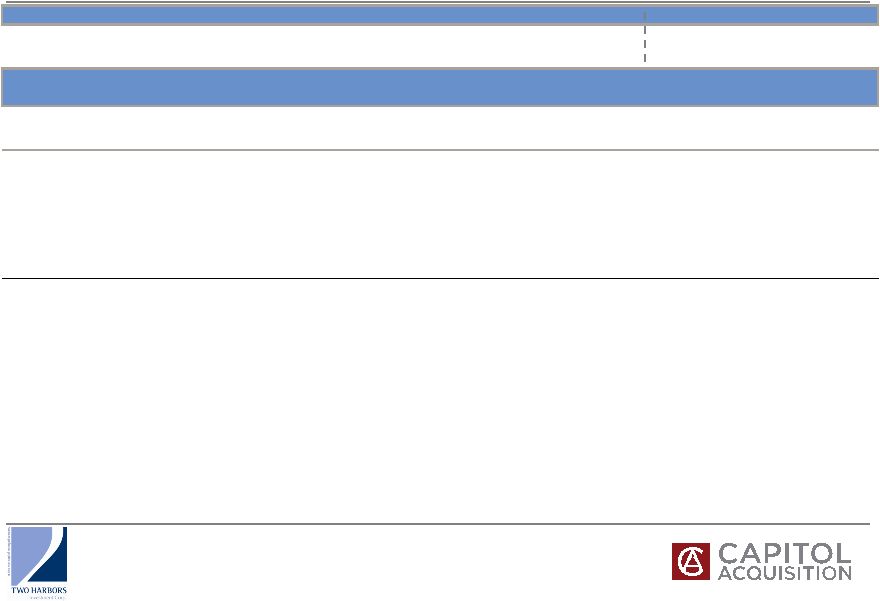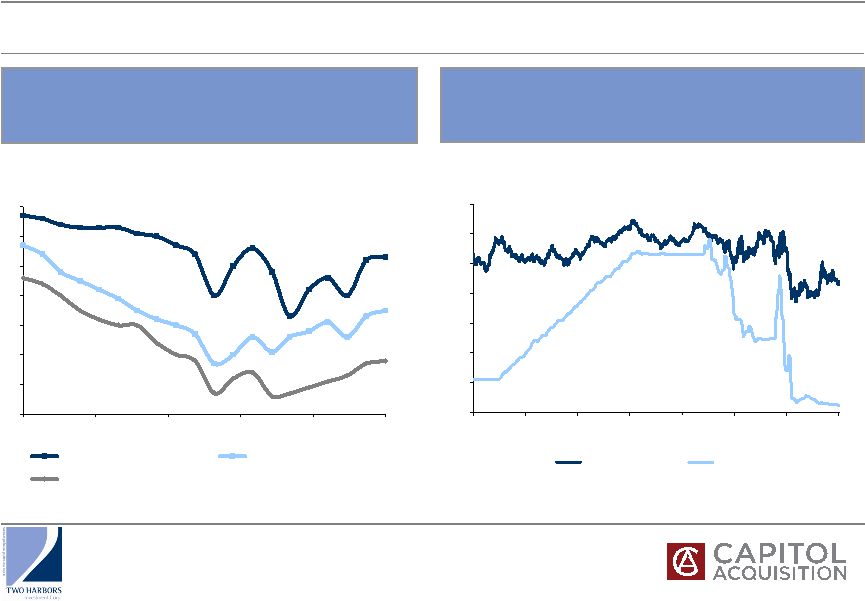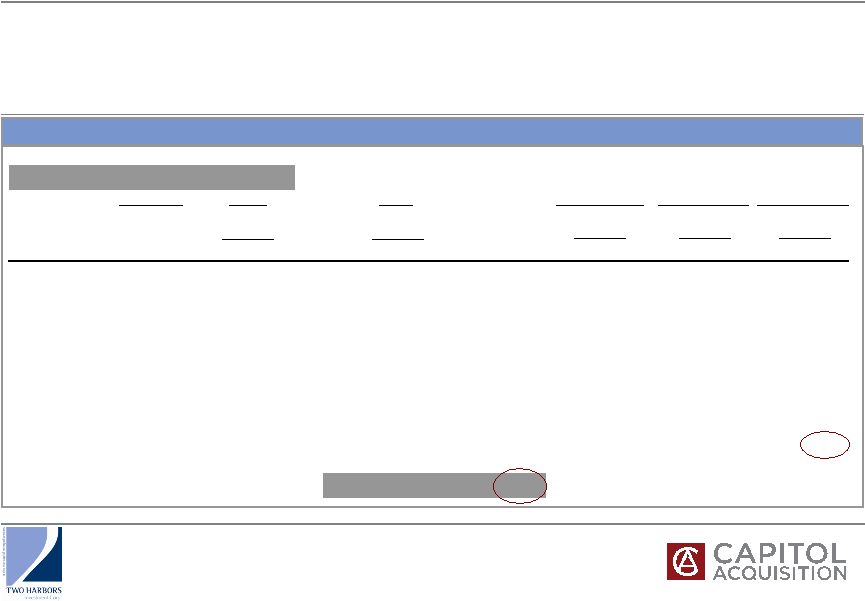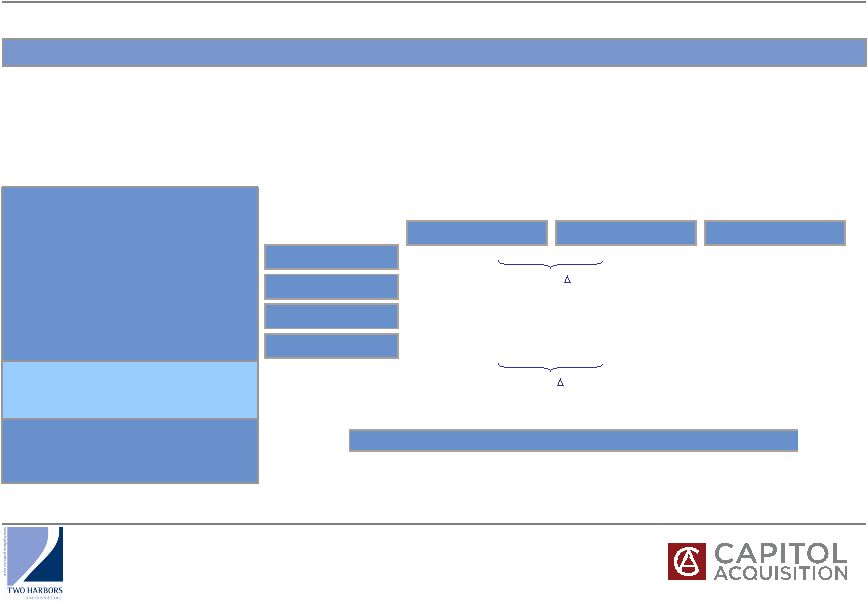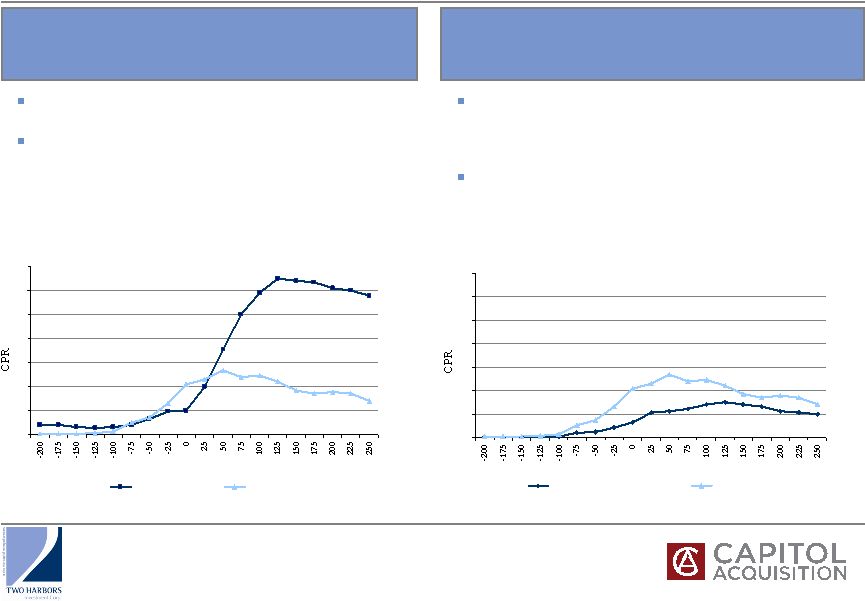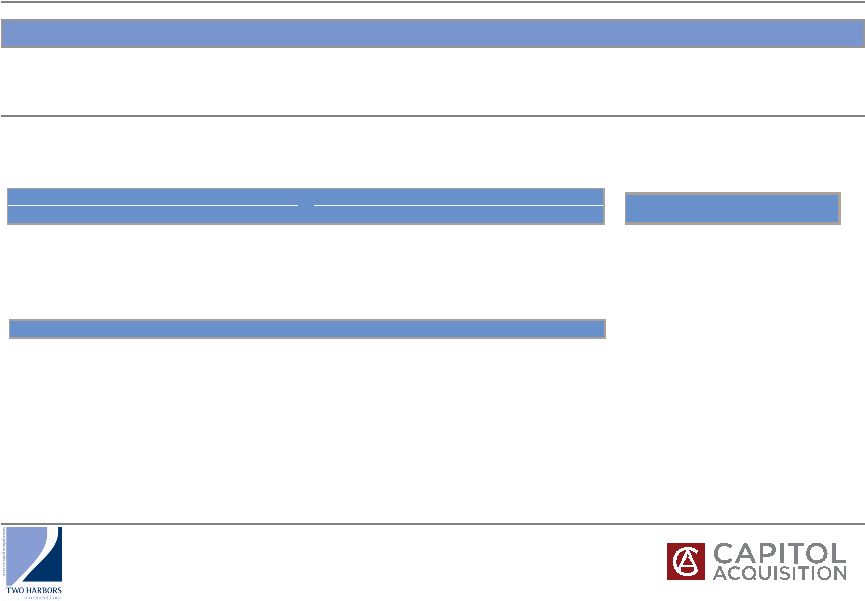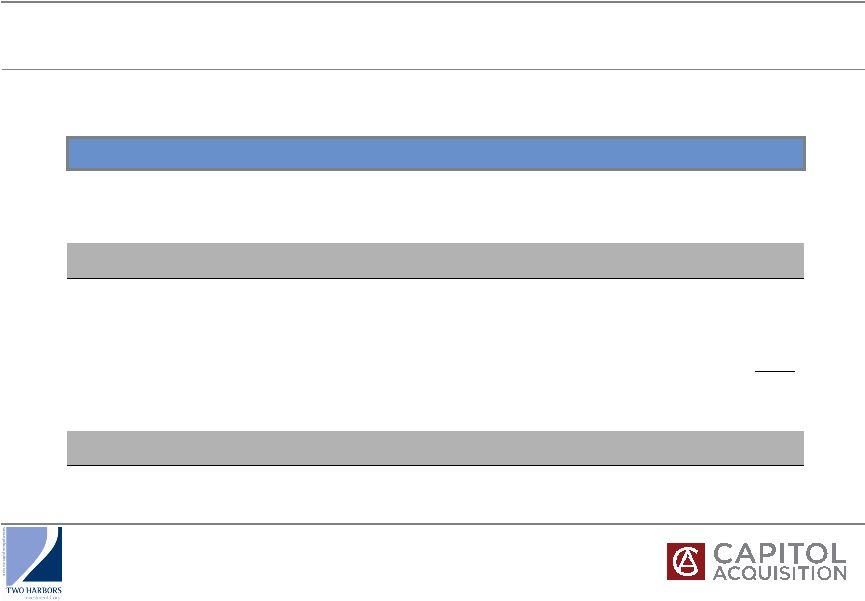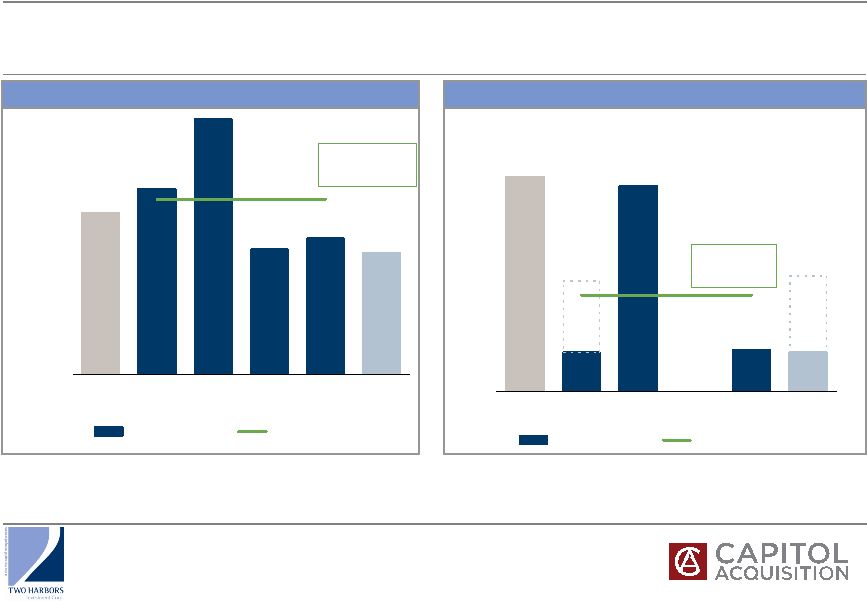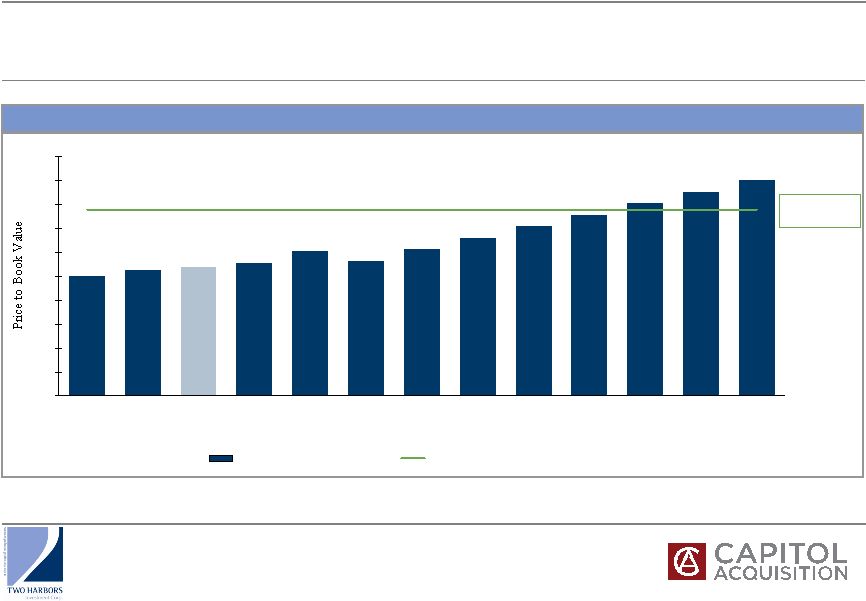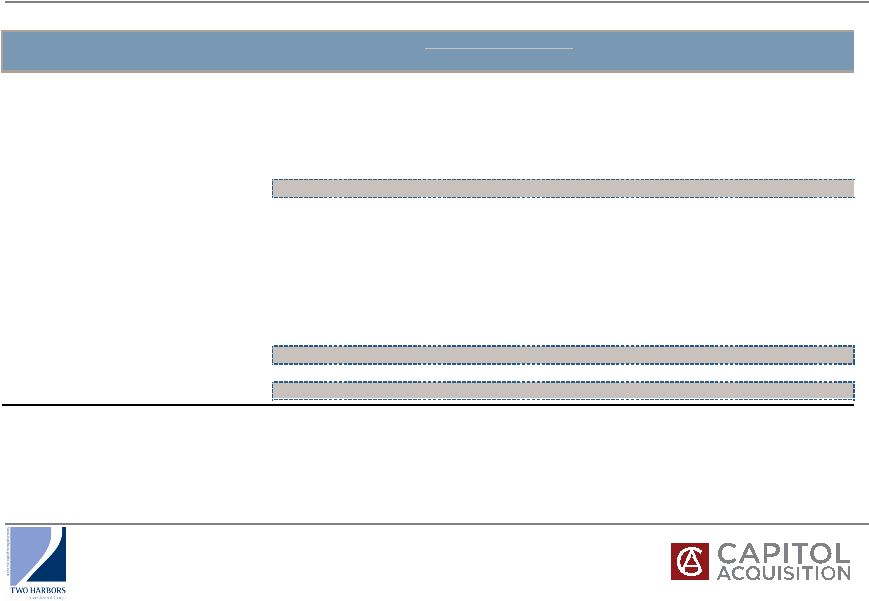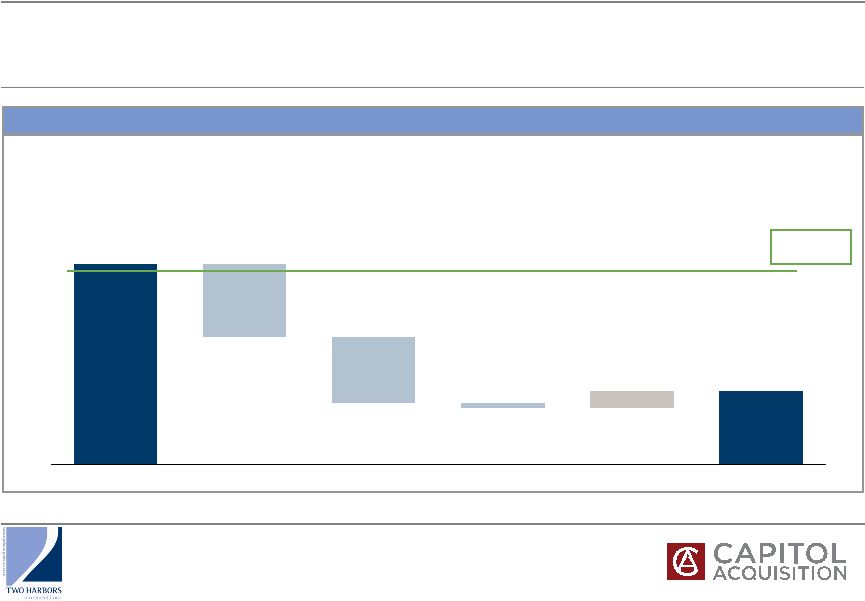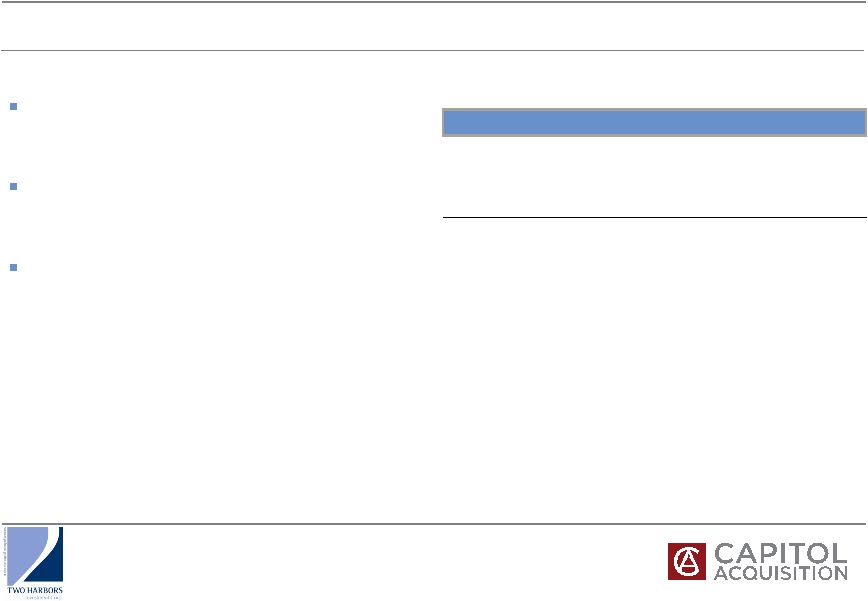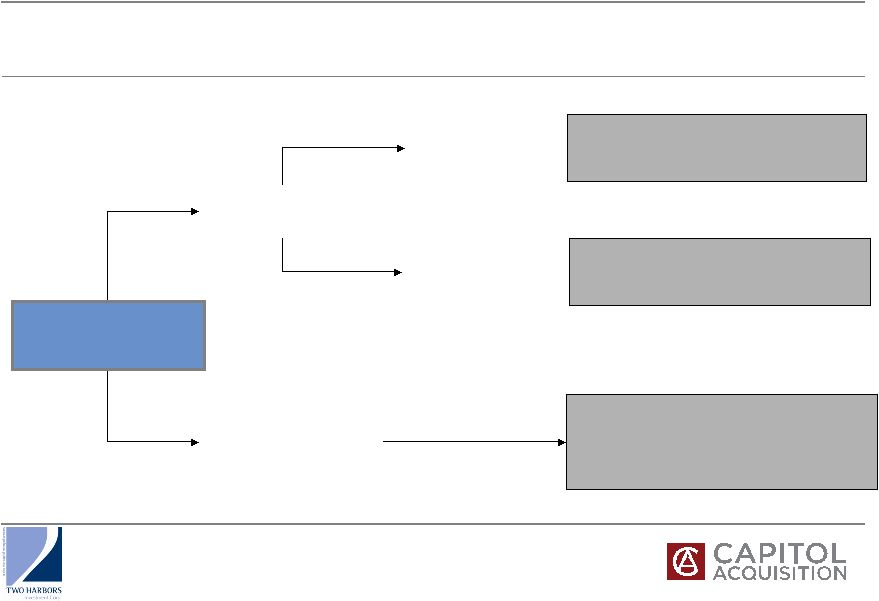| 3 Forward Looking Statements THIS PRESENTATION CONTAINS FORWARD-LOOKING STATEMENTS WITHIN THE MEANING OF THE
SAFE HARBOR PROVISIONS OF THE PRIVATE SECURITIES LITIGATION REFORM ACT OF
1995. FORWARD-LOOKING STATEMENTS INVOLVE NUMEROUS RISKS AND UNCERTAINTIES. TWO HARBORS’ ACTUAL RESULTS MAY DIFFER FROM ITS EXPECTATIONS, ESTIMATES, AND PROJECTIONS AND, CONSEQUENTLY, YOU SHOULD
NOT RELY ON THESE FORWARD-LOOKING STATEMENTS AS PREDICTIONS OF FUTURE
EVENTS. FORWARD-LOOKING STATEMENTS ARE NOT HISTORICAL IN NATURE AND CAN BE IDENTIFIED BY WORDS SUCH AS “ANTICIPATE,” “ESTIMATE,” “WILL,” “SHOULD,”
“EXPECT,” “BELIEVE,” “INTEND,” “SEEK,” “PLAN,” AND SIMILAR EXPRESSIONS OR THEIR NEGATIVE FORMS, OR BY REFERENCES TO STRATEGY, PLANS, OR INTENTIONS. STATEMENTS REGARDING THE FOLLOWING SUBJECTS, AMONG OTHERS, ARE FORWARD-LOOKING BY
THEIR NATURE: THE STATEMENTS (I) REGARDING THE PROPOSED TERMS AND
STRUCTURE OF THE PROPOSED TRANSACTION, THE TERMS OF TWO HARBORS’ SECURITIES UPON COMPLETION OF THE PROPOSED TRANSACTION AND THE PROPOSED TERMS AND STRUCTURE OF TWO HARBORS’ MANAGEMENT AND
ORGANIZATION UPON COMPLETION OF THE PROPOSED TRANSACTION; (II) REGARDING
THE ESTIMATED BOOK VALUE OF TWO HARBORS UPON CLOSING OF THE PROPOSED TRANSACTION; (III) REGARDING TWO HARBORS’ PROPOSED INVESTMENT STRATEGIES AND INVESTMENT GOALS, TARGETED INVESTMENTS AND THE
OPPORTUNITIES FOR INVESTMENT; (IV) REGARDING CERTAIN EXPECTED MARKET
TRENDS, INCLUDING THE ROLE PRIVATE CAPITAL IS EXPECTED TO PLAY IN FINANCING THE RESIDENTIAL MORTGAGE MARKET, THAT THE INCREASED SUPPORT AND INVOLVEMENT OF THE U.S. GOVERNMENT MAY OFFER POTENTIAL FOR
ATTRACTIVE NON-RECOURSE FINANCING ALTERNATIVES IMPROVING INVESTMENT
RETURNS, THAT AGENCY RMBS ARE LIKELY TO REMAIN AT LOW PRICES TO LIBOR FOR SOME TIME, AND THE PROJECTED PREPAYMENT SPEEDS OF CERTAIN ASSETS (INCLUDING THAT SOME PREPAYMENTS ARE LIKELY TO REMAIN SLOWER
THAN PROJECTIONS); (V) THAT CERTAIN NON-AGENCY RMBS ARE PRICED AT
LEVELS THAT COMPENSATE FOR CREDIT RISK AND HAVE UPSIDE TO POTENTIAL GOVERNMENT PROGRAMS PROVIDING NON-RECOURSE TERM FINANCING, AND CERTAIN AGENCY RMBS SPREADS ARE EXPECTED TO REMAIN WIDE; (VI)
REGARDING TWO HARBORS’ EXPECTATION TO GENERATE AN ATTRACTIVE ROE;
(VII) REGARDING TWO HARBORS’ ABILITY TO QUICKLY DEPLOY ITS CAPITAL AND THE PRICES AT WHICH AND THE EXTENT TO WHICH TWO HARBORS WILL INVEST ITS CAPITAL; (VIII) REGARDING TWO HARBORS’ FINANCING
STRATEGY AND USE OF LEVERAGE, INCLUDING TWO HARBORS’ TARGET LEVERAGE
RATIO AND POTENTIAL USE OF GOVERNMENT PROGRAMS; (IX) REGARDING THE EXPECTED TERMS OF THE TALF PROGRAM; AND (X) RELATING TO THE WARRANTS AS A POTENTIAL SOURCE OF CAPITAL GROWTH, INCLUDING THE BOOK VALUE OF TWO
HARBORS POST WARRANT EXERCISE AND THE USE OF PROCEEDS BY TWO HARBORS UPON
EXERCISE OF THE WARRANTS. THESE FORWARD-LOOKING STATEMENTS ARE SUBJECT TO RISKS AND UNCERTAINTIES.
TWO HARBORS UNDERTAKES NO OBLIGATION TO UPDATE OR REVISE ANY FORWARD-LOOKING STATEMENTS, WHETHER AS A RESULT OF NEW INFORMATION, FUTURE
EVENTS, OR OTHERWISE. IMPORTANT FACTORS, AMONG OTHERS, THAT MAY
AFFECT ACTUAL RESULTS INCLUDE: UNCERTAINTIES AS TO THE TIMING OF THE PROPOSED TRANSACTION; APPROVAL OF THE PROPOSED TRANSACTION BY CAC’S STOCKHOLDERS AND WARRANT HOLDERS; THE SATISFACTION OF CLOSING CONDITIONS
TO THE PROPOSED TRANSACTION; COSTS RELATED TO THE PROPOSED TRANSACTION;
CHANGES IN ECONOMIC CONDITIONS GENERALLY, CHANGES IN TWO HARBORS’ INDUSTRY AND CHANGES IN THE COMMERCIAL FINANCE AND THE REAL ESTATE MARKETS SPECIFICALLY; LEGISLATIVE AND REGULATORY CHANGES;
AVAILABILITY OF DEBT AND EQUITY CAPITAL TO TWO HARBORS ON FAVORABLE
TERMS, OR AT ALL; AVAILABILITY OF SUITABLE INVESTMENT OPPORTUNITIES THAT SATISFY TWO HARBORS’ INVESTMENT OBJECTIVES AND STRATEGIES; EXPECTATIONS REGARDING THE TIMING OF GENERATING REVENUES; THE DEGREE
AND NATURE OF TWO HARBORS’ COMPETITION; TWO HARBORS’ DEPENDENCE
ON ITS MANAGER AND INABILITY TO FIND A SUITABLE REPLACEMENT IN A TIMELY MANNER, OR AT ALL, IF TWO HARBORS OR ITS MANAGER WERE TO TERMINATE THE MANAGEMENT AGREEMENT; CHANGES IN THE RELATIONSHIPS
AMONG, OR THE BUSINESS OR INVESTMENT OBJECTIVES AND STRATEGIES OF, AND
CONFLICTS OF INTEREST AMONG, TWO HARBORS AND PINE RIVER, INCLUDING THE MANAGER; LIMITATIONS IMPOSED ON TWO HARBORS’ BUSINESS BY ITS EXEMPTIONS UNDER THE 1940 ACT; CHANGES IN INTEREST RATES AND INTEREST
RATE SPREADS; THE PERFORMANCE, FINANCIAL CONDITION AND LIQUIDITY OF
BORROWERS; INFLATION; CHANGES IN GAAP; CHANGES IN PERSONNEL AND LACK OF AVAILABILITY OF QUALIFIED PERSONNEL; MARKET TRENDS; POLICIES AND RULES APPLICABLE TO REITS; AND OTHER FACTORS NOT PRESENTLY IDENTIFIED.
| 






